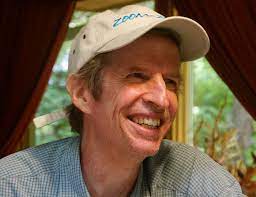

 Princeton University Press
Princeton University Press
Standing Soldiers, Kneeling Slaves: Race, War, and Monument in Nineteenth-Century America


Key Metrics
- Kirk Savage
- Princeton University Press
- Paperback
- 9780691009476
- 9.26 X 6.12 X 0.73 inches
- 0.92 pounds
- History > United States - Civil War Period (1850-1877)
- English
 Secure Transaction
Secure TransactionBook Description
The United States of America originated as a slave society, holding millions of Africans and their descendants in bondage, and remained so until a civil war took the lives of a half million soldiers, some once slaves themselves. Standing Soldiers, Kneeling Slaves explores how that history of slavery and its violent end was told in public space--specifically in the sculptural monuments that increasingly came to dominate streets, parks, and town squares in nineteenth-century America. Here Kirk Savage shows how the greatest era of monument building in American history arose amidst struggles over race, gender, and collective memory. As men and women North and South fought to define the war's legacy in monumental art, they reshaped the cultural landscape of American nationalism.
At the same time that the Civil War challenged the nation to reexamine the meaning of freedom, Americans began to erect public monuments as never before. Savage studies this extraordinary moment in American history when a new interracial order seemed to be on the horizon, and when public sculptors tried to bring that new order into concrete form. Looking at monuments built and unbuilt, Savage shows how an old image of black slavery was perpetuated while a new image of the common white soldier was launched in public space. Faced with the challenge of Reconstruction, the nation ultimately recast itself in the mold of the ordinary white man.
Standing Soldiers, Kneeling Slaves, the first sustained investigation of monument building as a process of national and racial definition, probes a host of fascinating questions: How was slavery to be explained without exploding the myth of a united people? How did notions of heroism become racialized? And more generally, who is represented in and by monumental space? How are particular visions of history constructed by public monuments? Written in an engaging fashion, this book will appeal to a wide range of readers interested in American culture, race relations, and public art.
Author Bio
Kirk started writing about public monuments as a freelancer, and got into art history to feed his habit. Monuments combined many of his passions: sculpture, architecture, landscape, urban development, and politics. He decided to do his dissertation on Civil War monuments because they were almost everywhere but no one seemed to pay any attention to them, certainly not art historians. Not long into the project one of his advisors mentioned that he would need to deal with slavery and race. And so began a long learning curve that is still bending in front of him, hopefully toward justice.
In the years since, he has taught and written about public monuments and public art as they intersect with issues of loss, trauma, deindustrialization, militarism, and racial justice. As a scholar and teacher, he takes seriously the responsibility to reckon honestly with the past, bearing in mind Ta-Nehisi Coates’ admonition, “You must struggle to truly remember this past in all its nuance, error, and humanity.” Because monuments are a microcosm of the world their makers hope to enforce or to invent, every research project necessarily has social, political, and ethical dimensions.
With much of the world now finally turning its attention to the legacies of white supremacy built into the memorial landscape, Kirk has been working more intensively with artists, planners, preservationists, and activists in the public sphere who are looking for new ways forward. He is proud to be serving on the advisory board of the innovative organization Monument Lab, and to consult with other organizations that are reexamining their intersection with – or their stewardship of – the memorial landscape.
Concurrently, he has developed a strong interest in indigenous studies through the work of some extraordinary graduate students at Pitt, and through a collaboration with his wife Elizabeth Thomas on a new book project. His Father’s Son: Yonaguska, Will Thomas, and the Forgotten History of Cherokee Resistance on the Appalachian Frontier tells the story of the extraordinary Cherokee chief Yonaguska (1760-1838) and his agent and adopted son William Holland Thomas (1805-1893), and how one family descendant has come to terms with the repression and manipulation of this history.
Another ongoing project taps his lifelong interest in cemeteries. “The Art of the Name” uses the example of an early federal soldier lot created in a Pittsburgh cemetery to examine the complex and contradictory movement of bodies, names, and memorials after the Civil War.
Source: University of Pittsburgh
Videos






Community reviews
Write a ReviewNo Community reviews